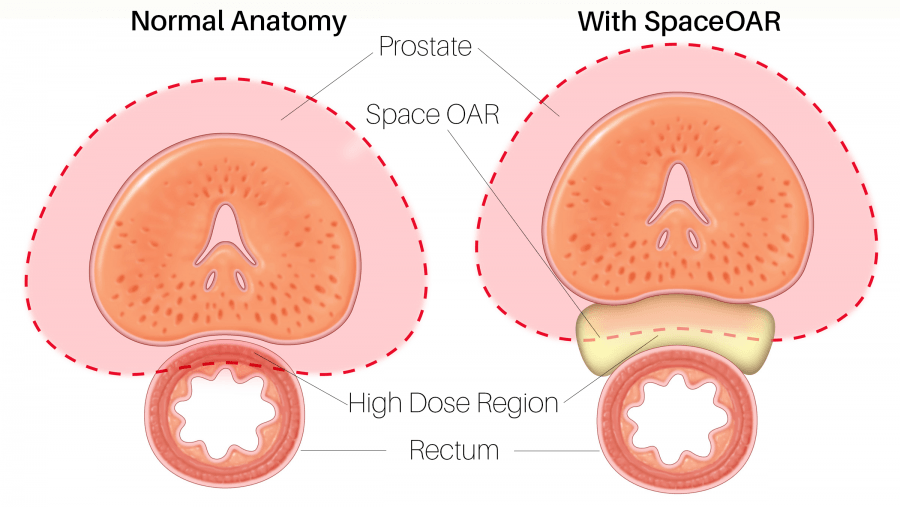Prostate Cancer Treatment Side Effects Aren’t Side Issues When They Happen to You

4/9/2019
According to the American Cancer Society, in 2019 an estimated 174,650 men will be diagnosed with prostate cancer. For those men, treatment options range from surgery to remove the entire prostate, radiation to target the cancer in the prostate, or ‘active surveillance’, monitoring carefully over time for signs of disease progression. The quality of life issues that arise from surgery and radiation range from diarrhea, rectal pain and bleeding, urinary leakage and loss of sexual function that can last for years.
For men that choose radiation therapy to treat their prostate cancer, there is an innovative product that can minimize side effects caused by the treatment. Because the prostate is located near the rectum, unintended radiation damage to the rectum and surrounding tissues can occur leading to lifelong complications. In April 2015, the Food and Drug Administration (FDA) cleared a product called SpaceOAR® hydrogel for use during radiation treatment for prostate cancer. The gel, which is mostly made of water, acts as a protective spacer between the prostate and the rectum and has been clinically proven to reduce the risk of side effects during and after radiation treatment. In a prospective, randomized, multi-center clinical trial in the U.S., patients treated with SpaceOAR hydrogel prior to prostate cancer radiation treatment demonstrated bowel, urinary and sexual benefit through three years of follow-up. The study found that the patients that did not receive SpaceOAR hydrogel experienced a clinically significant decline in bowel, urinary, and sexual quality of life 8 times more often than patients that received SpaceOAR hydrogel.
SpaceOAR hydrogel is placed in a minimally invasive outpatient procedure with local or general anesthesia. Patients can immediately resume their normal activities. The gel stays in the body for approximately three months and is then naturally absorbed and cleared in the urine in about 6 months.
